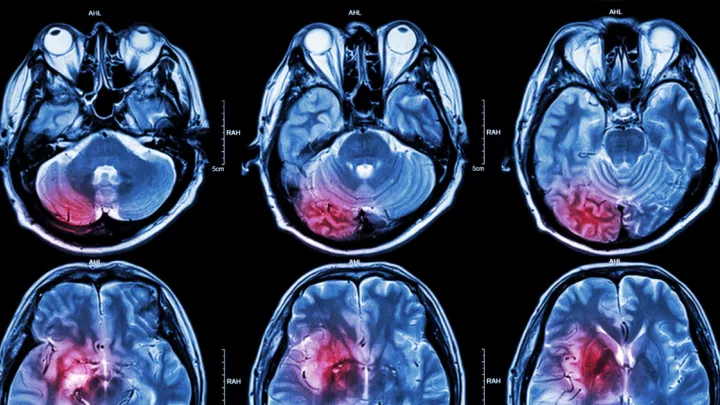86-year-old stroke survivor defies odds
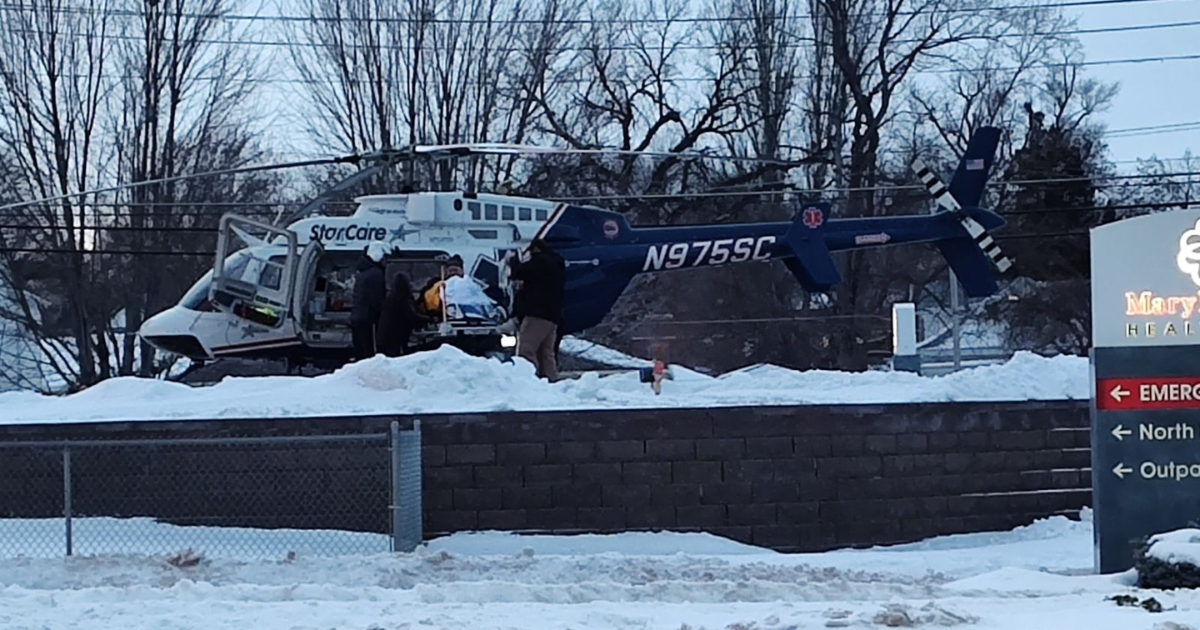
A stroke threatened to rob 86-year-old Pauline Johnson of her independence. However, quick treatment and a determined spirit have helped the Kearney, Nebraska, resident return to her home and routine.
A fateful celebration
On Jan. 21, 2024, Johnson and her family gathered in Hastings, Nebraska, to celebrate a belated Christmas. As they were getting ready to leave, she suddenly felt dizzy and sat down.
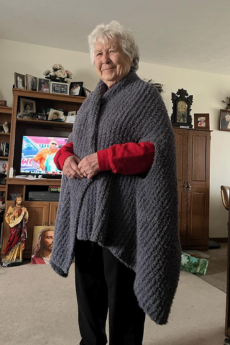
“My sister saw the left side of Mom’s face droop and said, ‘I think she’s having a stroke,’” says Johnson’s daughter, Mary Pitcher of Kearney. “She started slurring her words, and then she just slumped down.”
Johnson’s other daughter, Nancy Walker of Hastings, called 911. Luckily, there happened to be an ambulance nearby. When the paramedics arrived, Johnson perked up.
“When they came in, Mom was suddenly a hostess,” says daughter Connie Kirkpatrick of Alda, Nebraska. “’Do you want coffee? Can I get you something to drink?’”
Despite Johnson’s warm welcome, she clearly needed medical attention. The paramedics quickly assessed her condition and rushed her to Mary Lanning Hospital in Hastings.
Race against time
At the hospital, scans showed a blood clot in the basilar artery of Johnson’s brainstem. Clots like these are often devastating, causing total paralysis, coma or death.
Within minutes of arriving, Johnson became unresponsive. Neurologist Maxwell Nyce, MD, administered tPA, a powerful clot-busting medication that partially cleared the clot.
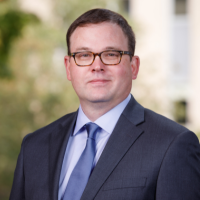
“The sooner we restore blood flow to the brain, the more likelihood of a good outcome,” Dr. Nyce says. “In some instances, as with Mrs. Johnson, the medication is insufficient, and the blockage needs to be mechanically cleared.”
Dr. Nyce called the Nebraska Medicine stroke team and spoke with neurologist T. Scott Diesing, MD. Dr. Diesing reviewed Johnson’s images and arranged an airlift to Nebraska Medical Center.
Once Johnson arrived in Omaha, neurosurgeon William Thorell, MD, performed a mechanical thrombectomy to clear the clot completely.
“The clot buster given in Hastings started opening the arteries, but the clot was large enough that it wasn’t going to be enough on its own,” Dr. Thorell says. “We were able to clear the arteries that feed the areas of the brain interpreting vision.”
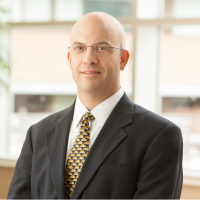
Meanwhile, as Johnson’s family was making the two-hour drive from Hastings to Omaha, Kirkpatrick received the news that her mom’s clot had been removed.
“The doctor called and said, ‘We got it. We were able to go straight in and pull it out. But we won’t know what her condition will be until she wakes up,’” Kirkpatrick says.
Surprising recovery
The following morning, Johnson’s family found her awake and alert in her hospital bed. Although she was unable to speak due to a breathing tube, her urgent hand motions mimicked driving.
A nurse provided her with a pen and paper, and Johnson wrote “eye” and “23rd.” It turned out she had an eye appointment scheduled for the next day and was worried she would miss it.
When Dr. Diesing entered Johnson’s room soon after, he found her sitting up, watching TV and communicating with her hands. “Once the breathing tube was removed, one of her first questions was, ‘When can I go back to work?’” he says.
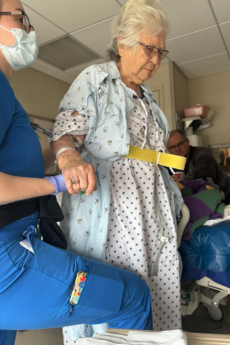
Dr. Diesing says Johnson’s remarkable outcome is due to her family’s quick actions and the rapid, multidisciplinary coordination between Mary Lanning Hospital and the Nebraska Medicine stroke program.
“Our program has been working with Mary Lanning and other hospitals throughout Nebraska and Iowa for over a decade, providing rapid accessibility and communication with our specialists so they can help improve stroke outcomes,” he says.
A determined spirit
On Wednesday, just three days after her stroke and surgery, Johnson was discharged with full mobility and no cognitive deficits.
A few weeks later, Johnson returned to her hotel job. While some additional health issues have been discovered, Johnson is determined to work through them and begin driving again.
“She’s a go-getter, and nothing is going to hold her back,” says son, Mark Johnson of Shelton, Nebraska. “She was really active in taking care of our dad, who had Parkinson’s and passed away in 2018, and she’s just a very determined person in general.”
Johnson is happy to live independently in her own home again and says she feels good. And her takeaway from surviving a life-threatening stroke?
“I just thank the good Lord that he was with me,” Johnson says.


